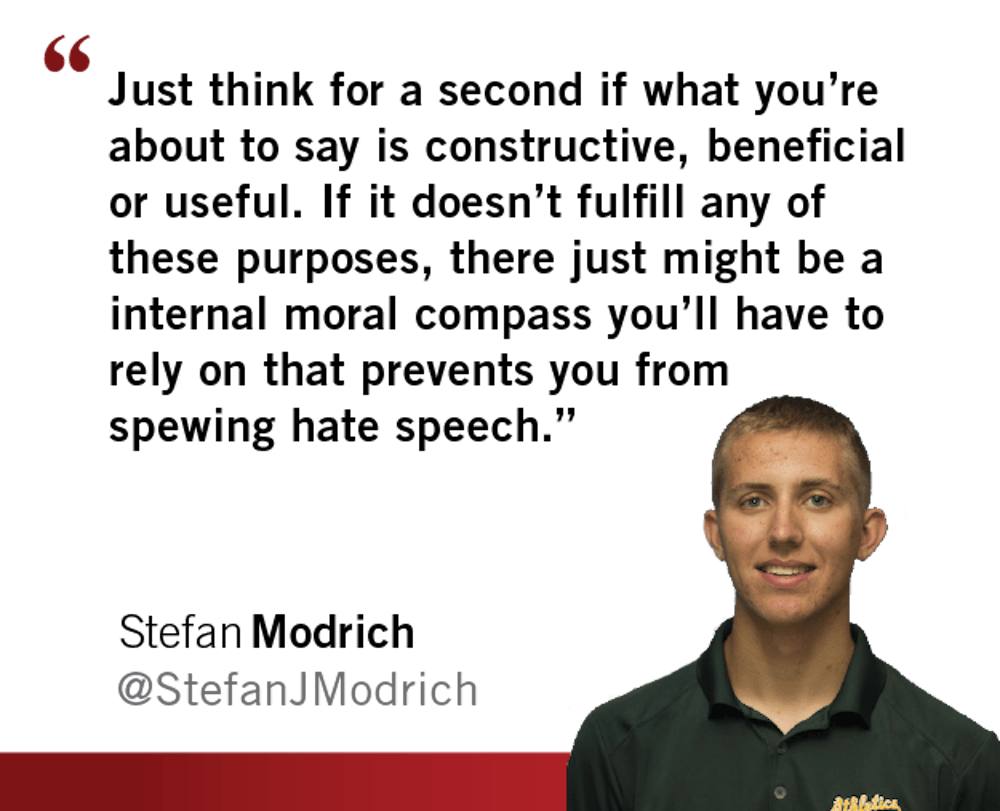I would much rather eulogize Minnie Minoso. But this is not going to be that column.
This weekend, I happened to stumble upon a tweet from former World Series champion, Arizona Diamondbacks and Boston Red Sox pitcher Curt Schilling, that linked to a post on his blog.
It struck such a chord with me that since I read it, I haven’t been able to close the tab.
As you might have deduced yourself, the post revealed a flurry of misogynistic, hate-fueled, explicitly sexual and disturbing tweets in response to Schilling tweeting a simple congratulatory shoutout to his daughter Gabby, who will be playing college softball next year.
And it made me think about the forum we now use almost universally to discuss and share things. Twitter can’t distinguish between levels of intellectualism — or lack thereof. It can’t filter the nasty, keyboard-crusading trolls and agitators from those simply trying to get ahead in their field and produce quality content.
In a day and age in which even the most innocuous things can be labeled with hyperbole and outcries of injustice and accusations of being politically incorrect, I’d love to know where the PC police stand on this issue.
I have two sisters, one of whom is already a college athlete (she plays hockey — I wouldn’t mess) and the other of whom is on track to play softball.
And to think that my sister’s friends, my parents or my brother and I might have to read these things about either of my sisters is appalling.
I can only hope anyone else would share the same sense of remorse if they were to place themselves in Schilling's shoes.
It’s already well-established that even genuine expressions of compliments, happiness and romantic gestures come across as dry and insincere when conveyed through a screen.
So how can this venomous cyber-filth carry with it even a shred of human decency?
I welcome constructive criticism. And because I’m naturally a person who likes to see people succeed (even the ones who probably don’t wish the same of me) I’ll even offer a word of advice.
Just think for a second if what you’re about to say is constructive, beneficial or useful. If it doesn’t fulfill any of these purposes, there just might be a internal moral compass you’ll have to rely on that prevents you from spewing hate speech.
I’m not naïve enough to think one person can solve the problems of a rapidly deteriorating culture where the above showcased behavior is applauded and encouraged.
But there needs to be a line drawn, and as suggested, real and severe consequences. Rewarding bad behavior creates (surprise) more of the same.
Schilling’s reaction is rather subdued, quite frankly, given the extremity and blasphemy of the language directed at his daughter.
He also has a bit more flexibility in his capacity to respond to said criminals. (That’s not mere hyperbole, according to several state laws.)
No one should ever have to experience what the Schilling family has. But tragically, many families have, and deal with unwarranted abuse from cowards masquerading on social media.
Eliminating trolls isn't practical. But prevention is. It starts with accepting a culture that is intolerant of bigotry and vindictiveness and appreciative of human achievement.
Reach the columnist at smodrich@asu.edu or follow @StefanJModrich on Twitter.
Like State Press Sports on Facebook and follow @statepressport on Twitter.





